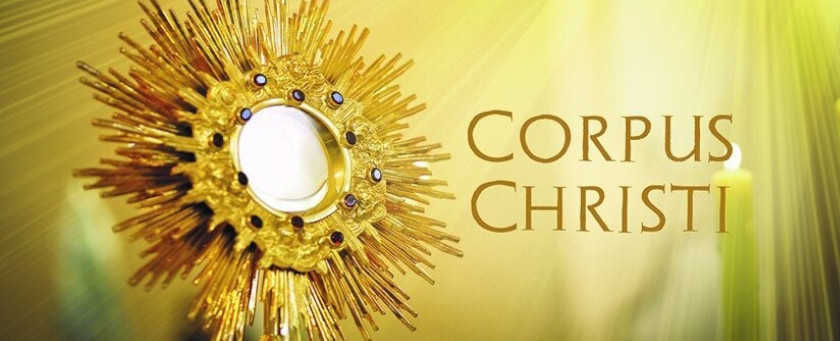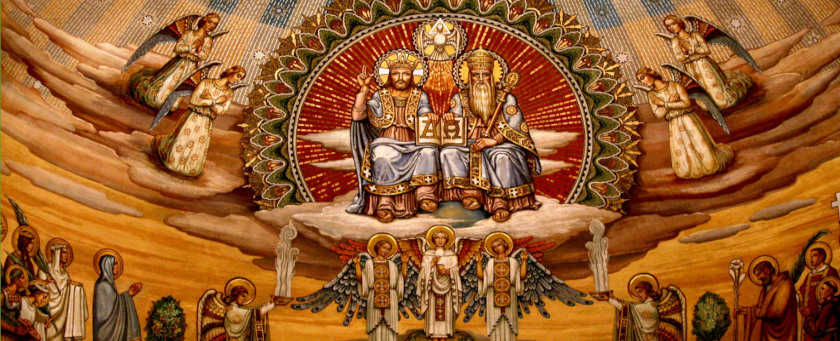The Father Reveals Christ in the Spirit
Fourteenth Sunday of Ordinary Time, Year A

Readings:
Zec 9:9-10, Ps. 145, Rm. 8:9, 11-13, Mt. 11:25-30
St. Paul says, “For if you live according to the flesh, you will die, but if by the Spirit you put to death the deeds of the body, you will live.” And as Jesus says the night of the Last Supper, “The Spirit is willing, but the flesh is weak.” St. Paul elaborates this notion further in his Letter to the Galatians, saying, “For the flesh has desires against the Spirit, and the Spirit against the flesh; these are opposed to each other, so that you may not do what you want. But if you are guided by the Spirit, you are not under the law” (Gal. 5:17-18). In this case, St. Paul show hows the Spirit liberates us from the law of sin. Of course, from these ideas arise the doctrine of Original Sin, how all people struggle with certain inclinations that are opposed to the Spirit. That is, after all, what the story of Adam and Eve seeks to explain. The fact that Adam and Eve were tempted to deny God is really a warning of what to watch out for in this life. But, Jesus shows us a still more excellent way.
The prophet Zechariah foretells the coming reign of Christ. He says, “See, your king shall come to you…and he shall proclaim peace to the nations.” Jesus came to show us the way to the Father and part of showing us is giving us a share in his Spirit. In today’s Gospel, Jesus says, “All things have been handed over to me by my Father.” And he exclaims, “I give praise to you, Father, Lord of heaven and earth, for although you have hidden these things from the wise and the learned you have revealed them to little ones.” He is giving praise to the fact that the Father has willed Jesus to be the one to reveal him to the world. Jesus gives a similar response at St. Peter’s confession, saying, “Blessed are you, Simon son of Jonah. For flesh and blood has not revealed this to you, but my heavenly Father” (Mt. 16:17). There is a pattern in these statements: Flesh has little to do with the revelation of God, which is truly a matter of the Spirit.
Now, the flesh is a necessary component of who we are, but how often do we reflect on the fact that we have a soul? For those who remember the Baltimore Catechism question: How is the soul like to God? The answer: The soul is like to God because it is a spirit that will never die, and has understanding and free will. The more we see ourselves as embodied spirits, the more receptive we will be to the Holy Spirit; the more we see ourselves as just a lump of cells, the less we see God in ourselves and one another. There is so much more to each of us than what the flesh can tell us, yet it is through the flesh, particularly our senses, that the higher faculties of the soul are engaged. For instance, when we see a beautiful painting, it can lift our spirits, or when we hear a beautiful piece of music, we are lifted out of our crude reality into the realm of harmony. There is always more to life than what meets the eye. And this is what St. Paul is getting at by telling us, “You are not in the flesh; on the contrary, you are in the spirit, if only the Spirit of God dwells in you.”
How does the Spirit of God dwell in us? Well, the sacraments, beginning with baptism, which is our first encounter of the indwelling of the Spirit. Baptism opens us to the grace of God and by receiving God’s grace, we are able to transcend our flesh and live in the spirit. But, that transcendence is not always automatic. In other words, in the Christian life, and especially from the Catholic perspective, we are invited to cooperate with God’s grace to more fully live in the spirit.
To cooperate with God’s grace, we might consider the Lord’s Prayer. I know we will pray the Lord’s Prayer at Mass today, but I hope every one of us is praying this prayer daily, throughout the day. And consider the meaning of these words: “Thy kingdom come, Thy will be done on earth as it is in heaven.” Whenever I pray the Lord’s Prayer I always stress those words “Thy will be done,” because my life is not my own, it was purchased by the Blood of Christ. By putting aside our own will, we learn to more fully embrace God’s will. That is truly what it means to live in the spirit.
And so, as we seek to live in the spirit, may our experience of the Most Holy Sacrament of the Altar strengthen our resolve to put aside the things of the flesh so we may live more fully for God. And may the communion we share be a sign of the indwelling of Christ in each of us, who calls us to himself and gives us rest.





Twitter
Facebook
Pinterest
Email